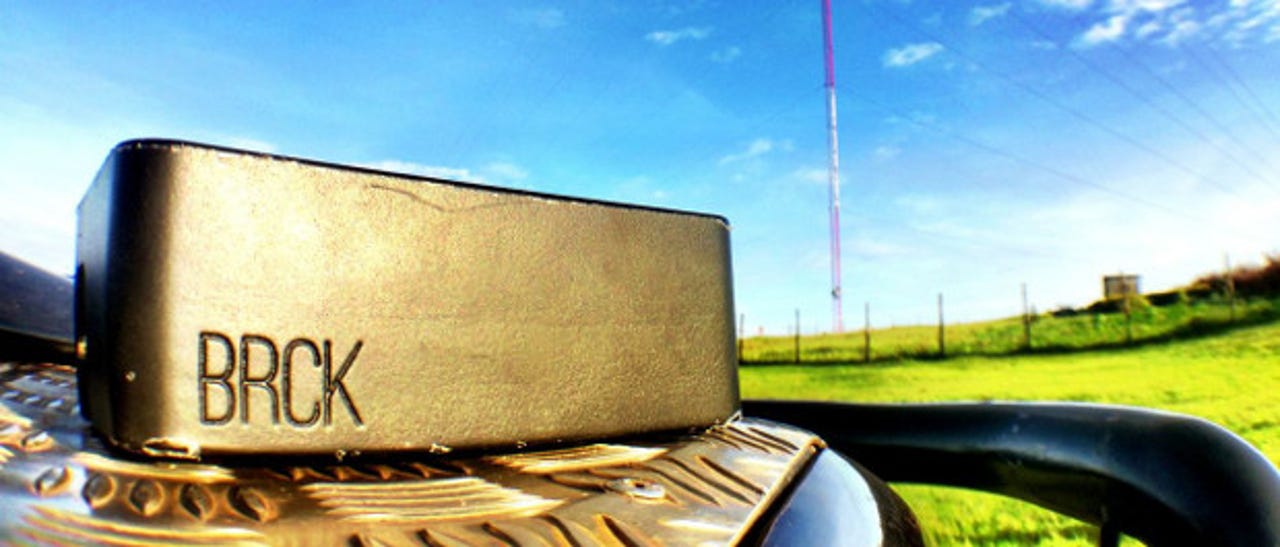If it works in Africa, it'll work anywhere: Kenya's hard-as-nails BRCK modem gets go-ahead


Ushahidi, the Kenyan not-for-profit organisation behind the development of the BRCK communications device, hopes that its success in raising funds through Kickstarter to develop the product will help to spur more hardware innovation in Kenya and other parts of Africa.
The BRCK, which Ushahidi describes as a backup generator for the internet, is a rugged modem and wireless access point that can connect to the internet via Ethernet, wi-fi, and 3G or 4G mobile networks. The BRCK can hop from one network to another and switch from mains power to battery power as required. It can also be accessed remotely to check how the wi-fi and electricity are performing, and alerts and notifications — such as reminders when the BRCK is low on power — can also be configured by smartphone or PC.
BRCK was born from frustration with typical modems and routers that were not built for the challenges of developing economies, and with equipment that was too delicate or complicated, or too dependent on reliable, always-on connectivity and power.
Designed for conditions in the developing world, BRCK is meant to keep users online when the communications or power infrastructure fails (on Tuesday, for example, Kenya experienced a national blackout). It's also designed to withstand more physical punishment than the devices most people depend on for their day-to-day connectivity.
The BRCK Kickstarter, which was launched on 5 May, pushed past its $125,000 funding target on Monday, with a week to spare before its 4 June deadline. At the time of writing, nearly 870 people had pledged over $130,000 to the project. The BRCK is the first foray into hardware for Ushahidi, which focuses on developing free and open-source software for data collection, visualisation and interactive mapping.
Though Ushahidi has good access to capital, the organisation decided to turn to Kickstarter to raise funds as a means of validating the market for BRCK and gauging global response to technologies built in Kenya, said Philip Walton, director of software at Ushahidi, which means "testimony" in Swahili.
The results show there's strong international interest in the device. "I am very encouraged by the response we are getting to the African technology message," Walton said. "I hope this is the first of many such hardware projects — we hope to see more hardware built in Africa."
The BRCK has been entirely designed and engineered in Kenya, but it will most likely be manufactured in China. In the longer term, Ushahidi hopes that Kenya's skills base and infrastructure will grow to size that will support the manufacturing of the BRCK in its home market, Walton said.
"It is our dream to build a culture of hardware," he said. "We want consumer electronics that have 'made in Kenya' stamped on them."
Around 70 percent of the backers for the project are from North America, which is not surprising given that Kickstarter is a North American platform, he added. But Ushahidi is also encouraged by interest it has had from Kenyan non-profit organisations and companies, who see the BRCK as a solution to real-world problems.
Walton says that unlike many of the technologies that entrepreneurs try to get funded through Kickstarter, the BRCK is production-ready. Ushahidi hopes to manufacture its initial run of 1,000 units before its November deadline — including 500 early-bird units for its Kickstarter backers — but has not drawn up shipment forecasts beyond then.
"The Kickstarter has been going for three weeks," Walton said. "We want to deliver on the story we are telling before we start manufacturing large quantities. But we do have an idea of the kind of long-term sales channels we'd like to aggressively pursue."
The BRCK's roots are Kenyan, but Ushahidi is hoping the market for the product is global. It reckons that with the whole world moving to mobile connectivity, the BRCK could be as relevant to "cafe-hoppers in San Francisco" as it is "to struggling coders in Nairobi". The organisation plans to sell the product to "adventure travellers" in North America and Europe, Walton said. As the company puts it in its Kickstarter video, "if it works in Africa, it'll work anywhere".
But it is also pitching it at non-profit organisations and commercial enterprises in Africa who are struggling with the infrastructure they need to support remote field workers and data collection through sensors, he added.